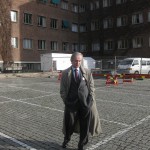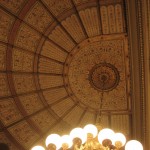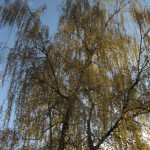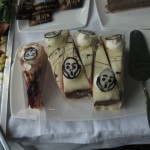University history is the nation’s history

 The conference was a delight. We convened in one of the older parts of the university pictured in this report. There we heard a fascinating welcome talk from John Peter Collett, Professor at the University of Oslo and then Mitchell Ash, Prof of Modern History, Vienna presented a keynote on ‘Universities, science, scholarship and national identity’ and there was a contribution from Benjamin A Elman, Professor of East Asian Studies and History, Princeton who gave a paper entitled: ‘Why was the scientist in Chinese Universities call ‘Mr Science’ based on Japanese universities?’ A theme running through all the contributions was that of national identity. This postings title comes from John Peter who explained the centrality of the University of Oslo to Norway. Many universities provide training for the elite administrators of the state or church but also embody national and often regional pride. It was only when the talks had concluded and we were filing out, some of us with rather numb due to the unforgiving wooden seats, that I snapped the ceiling.
The conference was a delight. We convened in one of the older parts of the university pictured in this report. There we heard a fascinating welcome talk from John Peter Collett, Professor at the University of Oslo and then Mitchell Ash, Prof of Modern History, Vienna presented a keynote on ‘Universities, science, scholarship and national identity’ and there was a contribution from Benjamin A Elman, Professor of East Asian Studies and History, Princeton who gave a paper entitled: ‘Why was the scientist in Chinese Universities call ‘Mr Science’ based on Japanese universities?’ A theme running through all the contributions was that of national identity. This postings title comes from John Peter who explained the centrality of the University of Oslo to Norway. Many universities provide training for the elite administrators of the state or church but also embody national and often regional pride. It was only when the talks had concluded and we were filing out, some of us with rather numb due to the unforgiving wooden seats, that I snapped the ceiling.
More papers followed until at 7.30 we attended a reception in the old town hall in Oslo. On the following day we met at the modern campus at the edge of the city. On the tram we passed John Colletts Plass, named after a relative of the organising Professor. The efficiency, food and drink and well-organised, fascinating range of speakers were his responsibility and when not project managing he managed to take some time to give us an informative, distinctive, historical guide.
Although some of it dates from between the wars much of the campus was built when there was a rapid expansion in the student population after the war. These black columns, said by some to represent the wealth due to recent exploitation of oil reserves, guard the route into the library.
At the core of the event was the presentation of the history of the university in nine volumes. These are in Norwegian but there is a beautifully illustrated volume in English which now graces the shelves of The History of the Open University Project. There is a report here. The texts are a model for how to produce a book about 200 years of an institute of higher education.
Saturday was given over to papers and several keynotes as well as a formal dinner. The eclectic range indicated that the history of universiites can be approached from many disciplines and that to understand The Open University a sense of wider developments is of conssiderable vcalue. On the final day we met in another part of the university, housed in the Botanical Gardens. We heard papers from Robert Kargon on ‘Exporting MIT laboratories of university change 1955-70’ and on writing the history of universities from Marie-Luise Bott (Humboldt) Guomundur Halfdanarson (University of Iceland) and John Peter Collett.
 Walking towards lunch at the Edvard Munch Cafe, humming ‘Isn’t it good? Norwegian Wood’ (and there is a great version by Cornershop) I was struck again by the friendliness and warm engagement of those who attended this event.
Walking towards lunch at the Edvard Munch Cafe, humming ‘Isn’t it good? Norwegian Wood’ (and there is a great version by Cornershop) I was struck again by the friendliness and warm engagement of those who attended this event.  When I reached my destination it was the (s)cream cakes which most impressed.
When I reached my destination it was the (s)cream cakes which most impressed.
Thanks to Frederick, John Peter and their colleagues. And a big welcome to Maria, born in mid-conference.
November 2nd, 2011 at 1:57 am
This sounds to have been a fantastic conference, well worth the time and effort. The best conferences, in my opinion, mix academic papers with exploratory sessions, and expert panels. Adding tram rides culminating in (s)cream cakes significantly raises the bar. The vexatious issue of higher education and national identity is fascinating, especially the contrast between Europe (with its relatively centralized sector) and the U.S., where the federal Department of Education keeps a loose reign on things but where funding sources are multiple and ever-changing.
November 3rd, 2011 at 9:12 am
I agree. The people of the Forum for University History in Oslo really know how to arrange a conference. Excellent keynote lectures, interesting sessions, good food (including the scream cakes), and a warm and welcoming atmosphere. Also very useful for those of us who are working on university histories. We were reminded of the variety of institutions offering higher education, all of them are called universities but they are really very different and difficult to compare. These days I find myself wondering: What is a university?